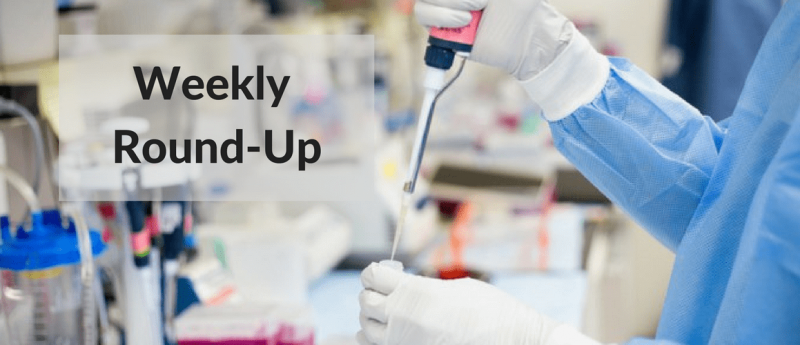Cell therapy weekly: job losses at Lonza and positive results in stage IV pancreas cancer

This week: autologous therapies shown to safe and tolerated in pancreatic cancer and type 1 diabetes trials, and new biopharma will develop candidate from MD Anderson Cancer Center.
The news highlights:
Lonza manufacturing plant hit with FDA warning will close, 125 jobs lost
Autologous CAR-T therapy shows therapeutic activity in stage IV pancreas cancer
Interim analysis show cell therapy for type 1 diabetes is well tolerated
University of Texas MD Anderson Cancer Center launches new biopharma for cell therapy development
Lonza manufacturing plant hit with FDA warning will close, 125 jobs lost
A cell therapy manufacturing facility owned by Lonza (Basel, Switzerland) that received a warning from the FDA regarding problems with sterility, validity and process simulations will close, at the cost of approximately 125 jobs. Lonza learned of the problem at the Walkersville (MD, USA) plant when a “product end-user notified the FDA of the issue”, according to Lonza spokeswoman Constance Ward.
Lonza has previously faced concerns from the FDA about biologics manufacturing at a MA, USA plant. After struggling to resolve the problems, the plant was closed, eliminating 250 jobs. In a press release dated February 14, Lonza announced plans to concentrate its work with cell and gene therapies at newly established ‘Centers of Excellence’ in Pearland (TX, USA) and Geleen/Maastricht (the Netherlands).
Autologous CAR-T therapy shows therapeutic activity in stage IV pancreas cancer
Initial results from a Phase Ib trial of an autologous anti-carcinoembryonic antigen (CEA) CAR-T cell therapy, developed by Sorrento Therapeutics, Inc. (CA, USA), has shown safety and activity in a pre-treated patient with refractory CEA-positive liver metastases. This trial follows two previous phase I studies and brings the total number of patients treated in this protocol to three. Patients received three hepatic arterial infusions of anti-CEA CAR-T cells (110 cells per dose) along with low dose IL-2 infusion.
“It is gratifying to observe that local infusion of CAR-T cells is very well tolerated and active in treating solid tumor metastases in the liver,” said Jerome Zeldis, Sorrento Chief Medical Officer. “Based on these exciting data, we are now working on strategies to enhance the anti-solid tumor activity while lessening the complications typical of CAR-T therapy. In addition, we are planning on performing combination therapy studies using our CAR-T programs, including anti-CEA CAR-T, together with other Sorrento assets.”
Interim analysis show cell therapy for type 1 diabetes is well tolerated
Caladrius Biosciences, Inc. (NJ, USA) has reported an interim analysis in a phase II trial of CLBS03, a personalized autologous cell therapy based on a patient’s own regulatory T cells, to treat recent-onset type 1 diabetes. The analysis was triggered by 50% of the targeted number of subjects completing six months of follow-up post-treatment.
“The results of this interim analysis show that CLBS03 remains well-tolerated and that a positive outcome for therapeutic effect at the end of the trial remains a statistical possibility. Of course, we have long anticipated that an analysis of the complete data set at the end of the study would be necessary to fully understand the impact of CLBS03 treatment on patients with recently-diagnosed type 1 diabetes,” stated David J. Mazzo, President and Chief Executive Officer of Caladrius.
“We look forward to completing and reporting on the 12-month follow-up on all 110 patients in early 2019 and using the complete results to determine the next steps in our development plan.”
University of Texas MD Anderson Cancer Center launches new biopharma for cell therapy development
The University of Texas MD Anderson Cancer Center (TX, USA) and Berkeley Lights, Inc. (CA, USA) today announced the launch of Optera Therapeutics Corp, a biopharmaceutical company that will develop cell therapies with scalable manufacturing solutions for cancer.
“MD Anderson is dedicated to improving the standard of care for our patients as we strive to realize our mission to end cancer,” said Patrick Hwu, division head of Cancer Medicine (MD Anderson). “Our hope is that — by combining our cell therapy research expertise with advanced automation capabilities — we will enhance our ability to deliver these treatments to every patient who needs them.”
Eric Hobbs, chief executive officer of Berkeley Lights, Inc., added, “the Berkeley Lights team is privileged and excited to join forces with our colleagues at MD Anderson who have devoted their lives to defeating cancer. We are absolutely driven to make their life-saving cell therapies accessible to all.”
For more weekly cell therapy news, read previous editions of the cell therapy weekly.